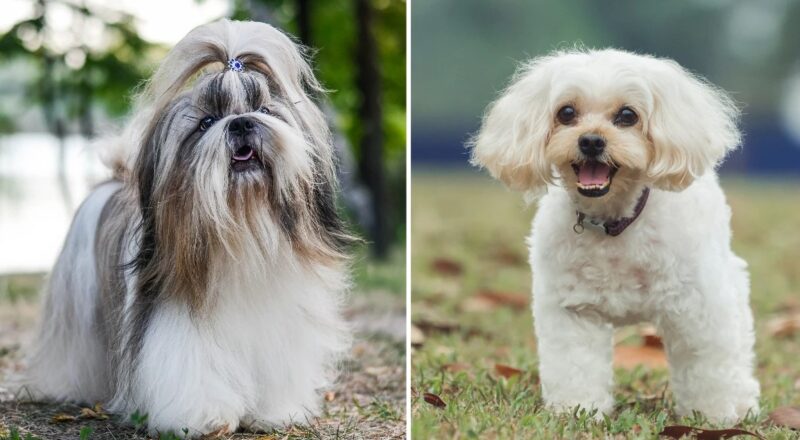Deciding between a Shih-Tzu and a Shih-Poo for your family can be difficult. Both breeds are known for their affectionate nature and suitability as family pets. The Shih-Tzu is celebrated for its loyalty and gentle temperament, making it a fantastic choice for homes with kids.
On the other hand, the Shih-Poo, a mix between a Shih-Tzu and a Toy Poodle, combines playfulness with intelligence, offering a more energetic option while still being a loving companion.
In this article, we’ll explore what makes each breed stand out and help you decide which one is the best fit for your family.
Key Differences Between Shih-Tzu and Shih-Poo
| Shih-Tzu | Shih-Poo | |
|---|---|---|
| Origin | China | Hybrid (Shih-Tzu and Toy Poodle) |
| Size | Small (9-16 lbs) | Small to Medium (8-20 lbs) |
| Coat Type | Long, dense, and flowing | Curly or wavy, often hypoallergenic |
| Temperament | Affectionate, loyal, and calm | Playful, intelligent, and energetic |
| Exercise Needs | Moderate | Higher |
| Grooming | High maintenance | Moderate maintenance |
| Allergies | Not hypoallergenic | Often hypoallergenic |
Temperament
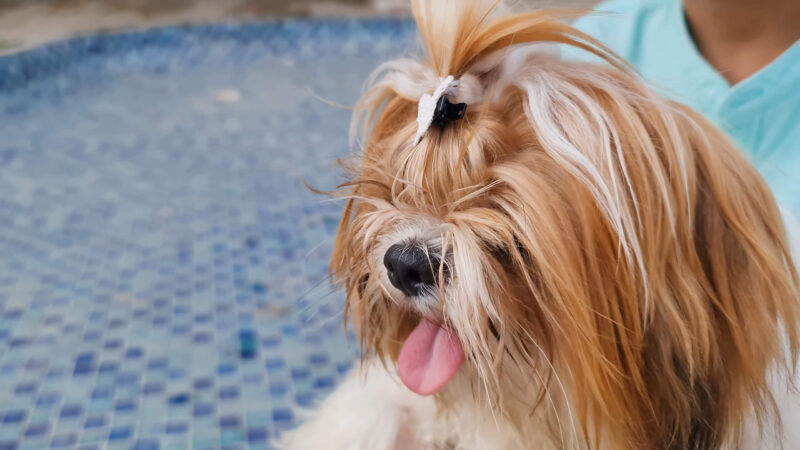
The temperament and family compatibility of both the Shih-Tzu and Shih-Poo are key factors to consider when choosing the right breed for your household.
Affection
Both breeds are known for their affectionate nature. Shih-Tzus are renowned for their loyalty and love towards their owners. They tend to form strong bonds and are often very cuddly. Similarly, Shih-Poos are also very loving and enjoy spending time with their families, making them great companions.
Energy Level
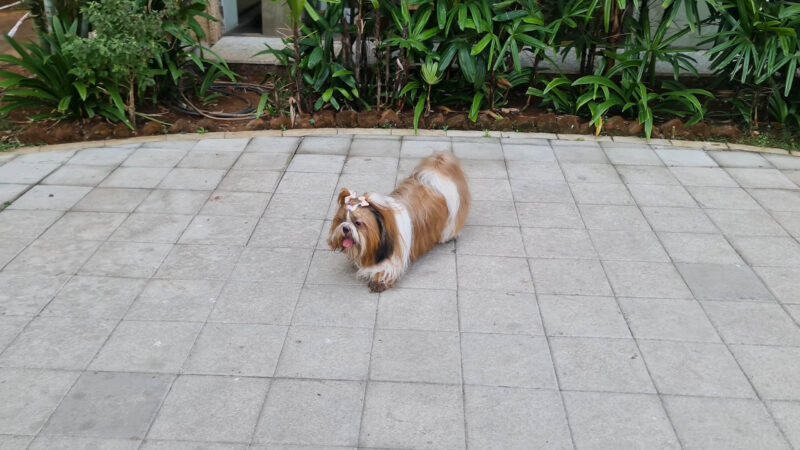
Shih-Tzus have a moderate energy level. They enjoy playtime and short walks but are generally content with a more relaxed lifestyle. On the other hand, Shih-Poos are more energetic and require more activity to stay happy. They thrive in environments where they can engage in playful activities and exercises.
Adaptability
Shih-Tzus adapt well to different living situations, including apartments and houses, due to their moderate energy levels and easy-going nature. Shih-Poos are also adaptable but may need a bit more stimulation and interaction, especially in new environments.
Interaction with Kids
Shih-Tzus are known for their gentle demeanor, which makes them particularly good with children. They are patient and tolerant, which can be ideal for families with young kids. Shih-Poos are also good with children but may have a bit more energy, which could be overwhelming for very young children.
Interaction with Other Pets
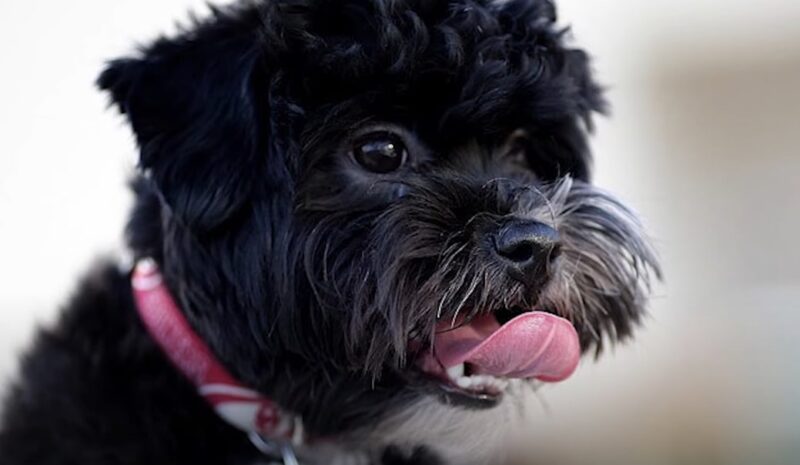
Both breeds generally get along well with other pets. Shih-Tzus are friendly and social, making them easy to integrate into households with other animals. Shih-Poos, being playful and curious, also tend to get along with other pets, although their higher energy levels might require some adjustment time.
Socialization
Shih-Tzus have moderate socialization needs. They enjoy meeting new people and pets but don’t require constant interaction. Shih-Poos have higher socialization needs and thrive on regular interaction with both people and other animals. They benefit from frequent social activities to maintain their happiness and well-being.
Grooming Needs
The grooming needs and coat maintenance of the Shih-Tzu and Shih-Poo are quite different due to their distinct coat types and characteristics.
Shih-Tzu
This breed is known for its long, flowing coat, which requires significant upkeep. Regular brushing is essential to prevent matting and tangles. Shih-Tzus should be brushed daily, and their coats often need to be trimmed every few weeks to maintain a manageable length.
Additionally, their eyes and face need regular cleaning to avoid tear staining, which is common in the breed. Overall, Shih-Tzus demand high maintenance to keep their coats looking their best.
Shih-Poo
The Shih-Poo’s coat, a mix of Shih-Tzu and Toy Poodle genetics, tends to be curly or wavy. This type of coat is often more manageable than the Shih-Tzu’s, but it still requires regular care. Shih-Poos generally need to be brushed several times a week to prevent matting.
Their coat is often considered hypoallergenic, which can be a benefit for people with allergies. Regular grooming, including occasional trims, helps to keep the coat healthy and looking good.
Exercise
While Shih-Tzus are relatively low-maintenance in terms of exercise, Shih-Poos need more physical activity to stay happy and healthy. The Shih-Poo’s higher energy level makes it a better fit for more active households.
Shih-Tzu
Shih-Tzus have moderate exercise needs. They enjoy short walks and playtime but are generally content with a less active lifestyle. A couple of short walks a day and some playtime at home are usually sufficient to keep them happy and healthy. Due to their calm temperament, they can adapt well to apartment living, as long as they receive daily activity and mental stimulation.
Shih-Poo
Shih-Poos are more energetic and require more exercise compared to Shih-Tzus. They thrive with regular, moderate exercise and enjoy activities like fetch and agility games. Daily walks should be longer, and they benefit from interactive play that challenges their intelligence and energy.
This breed’s higher activity level makes it a good fit for families or individuals who can provide more engaging physical activities and mental stimulation.
Health and Lifespan
Both breeds have relatively similar lifespans, but their health issues can vary. Shih-Tzus are more prone to respiratory and eye problems, while Shih-Poos may face issues related to dental health and allergies.
Shih-Tzu
Shih-Tzus generally have a lifespan of around 10 to 16 years. While they are relatively healthy, they are prone to certain health issues. Common problems include respiratory issues due to their brachycephalic (short-nosed) structure, dental problems, and eye conditions such as cataracts and corneal ulcers.
Regular veterinary check-ups and good dental care are essential to manage these risks. Additionally, their long coat requires regular grooming to prevent skin infections and other dermatological issues.
Shih-Poo
Shih-Poos have a similar lifespan, typically ranging from 12 to 15 years. As a hybrid breed, they can inherit health issues from both parent breeds. Common health concerns include dental issues, allergies, and patellar luxation (a knee joint problem).
The Shih-Poo’s coat may also lead to skin issues if not properly maintained. However, due to their Poodle ancestry, they may have fewer issues related to respiratory problems compared to the Shih-Tzu. Regular vet visits and a healthy diet can help manage potential health concerns.
Training and Socialization
Shih-Poos may have an edge due to their Poodle heritage, which enhances their learning abilities. Consistent, positive reinforcement and early socialization are important for both breeds to ensure they develop good behavior and social skills.
Shih-Tzu
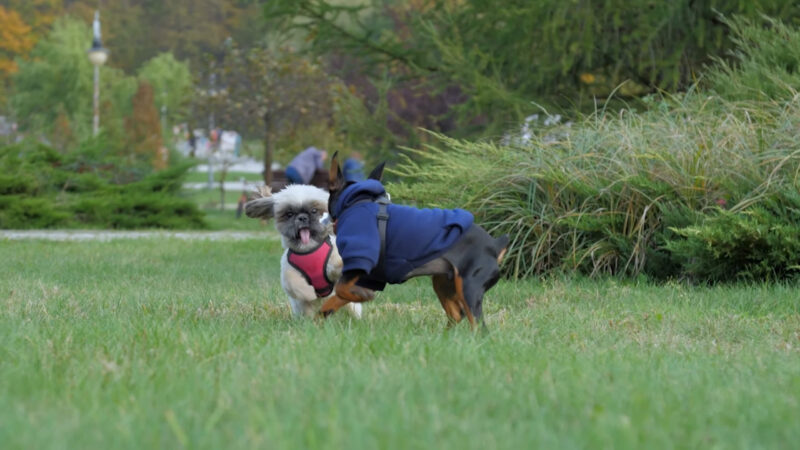
Shih-Tzus are generally intelligent and eager to please, which can make training relatively straightforward. However, their independent streak may sometimes present challenges, so consistent and patient training is essential. Socialization is also important from an early age to ensure they are well-adjusted and comfortable around other animals and people. Positive reinforcement techniques work best, as Shih-Tzus respond well to praise and treats.
Shih-Poo
Shih-Poos are often highly trainable due to their Poodle lineage, which contributes to their intelligence and eagerness to learn. They typically excel in training sessions and can pick up commands and tricks quickly. Like Shih-Tzus, early socialization is crucial to help them develop into well-behaved adults.
Shih-Poos tend to be adaptable and respond well to positive reinforcement methods. Their higher energy level and curiosity mean that they benefit from regular mental stimulation and varied training activities.
Are They Suitable for Families with Children and Other Pets?
Both the Shih-Tzu and Shih-Poo are suitable for families with children and other pets. Shih-Tzus bring a calm and gentle presence, making them great for various family situations, while Shih-Poos offer playfulness and energy.
Shih-Tzu
Shih-Tzus are well-suited for families with children. Their gentle and patient nature makes them good companions for kids, and they generally handle the hustle and bustle of family life well. They are affectionate and enjoy being part of the family activities.
Shih-Tzus also tend to get along well with other pets, including dogs and cats, especially when properly socialized from a young age. Their calm demeanor helps them adapt to various household dynamics.
Shih-Poo
Shih-Poos are also a great choice for families with children. Their playful and energetic nature can match well with active kids, and they enjoy engaging in playtime and activities. Shih-Poos typically get along with other pets, particularly if they are introduced and socialized properly.
Their intelligence and curiosity can make them good companions for other animals, as long as interactions are supervised to ensure everyone gets along well.
FAQs
How much does a Shih-Tzu typically cost compared to a Shih-Poo?
The cost of a Shih-Tzu generally ranges from $1,000 to $3,000, depending on factors such as pedigree, breeder reputation, and geographic location. Shih-Poos typically cost between $1,200 and $2,500. Prices can vary based on the same factors, with Shih-Poos sometimes being slightly more expensive due to their hybrid status and the Poodle lineage.
Do Shih-Tzus or Shih-Poos shed more?
Shih-Tzus shed moderately. Their long, dense coat tends to trap loose hair, requiring regular grooming to manage shedding. Shih-Poos, on the other hand, usually shed less because of their curly or wavy coat, which can be more hypoallergenic. This makes Shih-Poos a better option for individuals with allergies.
Are Shih-Tzus or Shih-Poos better for first-time dog owners?
Both breeds can be good choices for first-time dog owners, but Shih-Poos might be slightly better due to their higher trainability and adaptability. Shih-Poos are often more responsive to training and enjoy learning new commands, which can make them easier for beginners to manage.
Shih-Tzus, while affectionate and friendly, require more grooming and may present some challenges with training due to their independent nature.
How can I tell if a Shih-Poo is a good match for my family?
To determine if a Shih-Poo is a good match for your family, consider their energy levels and need for regular exercise. Shih-Poos are playful and energetic, so they thrive in active households where they receive ample attention and activity.
Additionally, ensure that your family can accommodate their grooming needs and provide consistent training and socialization. Meeting with the dog and discussing its temperament with the breeder can also help assess compatibility.
Last Words
The choice between a Shih-Tzu and a Shih-Poo depends on your family’s lifestyle, grooming preferences, and activity level. Both breeds can make wonderful pets, but understanding their unique characteristics will help you find the best fit for your home.

